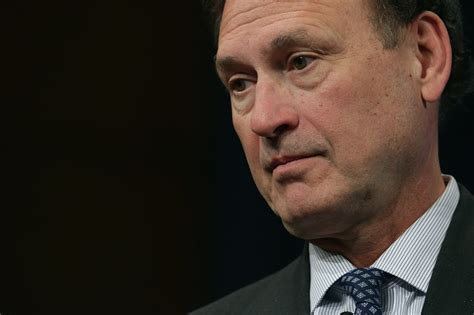Opinion by Tim Busch and Kevin Stidham
What makes Justice Samuel Alito’s leaked draft opinion in Dobbs v. Jackson Women’s Health Organization so powerful and, for that matter, so powerfully infuriating to the defenders of Roe v. Wade? Simple: Alito masterfully points out the faulty history and legal reasoning on which Roe was based. He correctly points out that the entire enterprise of “constitutional abortion” was flawed from the start, asking questions that abortion’s defenders don’t want answered.
To start, Alito questions the Supreme Court’s grasp of the history of abortion laws when it decided Roe in 1973. Roe held that the 14th Amendment of the Constitution prevents states from infringing on a person’s right to abort her unborn child. Alito highlights that “Roe’s failure even to note the overwhelming consensus of state laws” completely banning abortions “when the Fourteenth Amendment was adopted.” Why did Roe ignore discussing the very laws it was declaring unconstitutional?
Alito also questions the Roe court’s interpretation of criminal abortion statutes, which it generally chalked up to a “Victorian social concern.” Alito thoroughly rebukes this claim by reviewing historical abortion statutes. Not one mentions anything about social concerns. Instead, the vast majority explicitly aimed to protect the unborn child. For example, New York’s abortion statute, from 1826, criminalizes procedures “with intent thereby to destroy such child” and deems the person who conducted the abortion guilty of manslaughter “in case the death of such child or of such mother.” Far from a social concern, abortion was long seen as a criminal act.
Alito then questions how the Roe court could have made such obvious mistakes. After all, the justices who issued the 1973 decision had well over a year to research the history and legality of abortion. Remarkably, Alito locates the source of Roe’s error: It uncritically relied “on two discredited articles by an abortion advocate.” From these discredited articles, Roe confidently stated abortion was not deemed a crime throughout U.S. history when, in fact, it clearly was.
After dismissing this mistaken history, Alito questions Roe’s bizarre turn to ancient history. The 1973 decision irrelevantly rambled about how ancient abortion customs were viewed by “the Ephesian, Soranos, often described as the greatest of the ancient gynecologists,” Aristotle’s “three-stage theory of life,” and the Book of Exodus. This rambling causes Alito to question: Why did the Roe court make “no effort to explain why it was included?”
The answer is that Roe had nothing to do with the Constitution, the only thing that matters when asserting a new constitutional “right.” In Alito’s words, Roe’s opinion “spent many paragraphs conducting the sort of fact-finding that might be undertaken by a legislative committee.” What’s more, in the end, “the scheme Roe produced looked like legislation, and the Court provided the sort of explanation that might be expected from a legislative body.” Nowhere did the all-important Constitution come into play.
Lastly, and most importantly, Alito questions Roe’s progeny, the 1992 Supreme Court case Planned Parenthood v. Casey. He points out that Casey “pointedly refrained from endorsing most of Roe’s reasoning” and “silently abandoned Roe’s erroneous historical narrative.” Yet Casey refused to overrule the so-called constitutional right derived from that incorrect legal reasoning and historical narrative.
Alito then asks the obvious: How can Casey be treated as legitimate when its central holding contradicted its own conclusions about critical laws and facts? He shows that Casey upheld a decision that it simultaneously admitted was likely wrong, a logical and constitutional absurdity.
All of Alito’s reasoning points to the ultimate question: What would the right ruling have been in Roe? Had the justices at the time actually reviewed the right history and applied the real Constitution, they would have found that laws made out of “respect for and preservation of prenatal life” were entirely appropriate. Roe could even have ruled that laws allowing a doctor to kill an unborn child intentionally were themselves unconstitutional, given the history and logic of the 14th Amendment. The Roe court could have ended the abortion debate then and there. Instead, it created a monster, which Alito is now attempting to slay.
Read More From The PatriotAmerican
It is no easy task to write a judicial opinion that will withstand time and scrutiny. The opinions that Supreme Court justices write ought to be accurate, thorough, and well reasoned. Roe failed to meet this standard, consequently doing extraordinary harm to America for nearly 50 years. On the other hand, Alito’s draft not only meets but exceeds this standard. We can only hope the final opinion in Dobbs finishes what Alito started, enabling our country to begin undoing Roe’s damage.
Tim Busch, a lawyer in Irvine, California, is the founder of the Napa Institute. Kevin Stidham is a lawyer and entrepreneur in Laguna Niguel, California.

